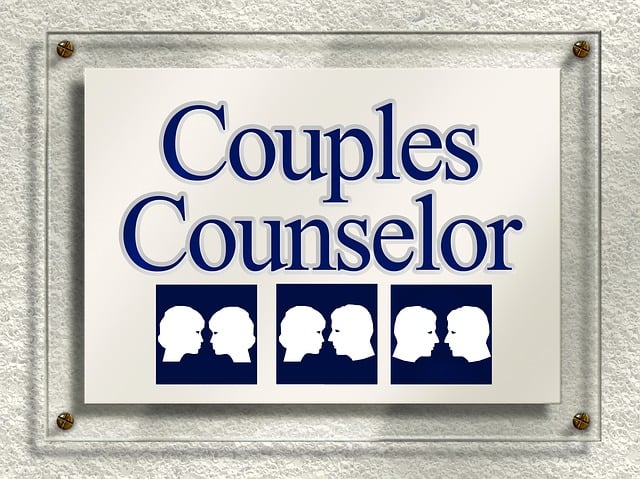Couples counseling is a professional process facilitated by trained therapists aiding married couples in improving communication, resolving conflicts, and rebuilding trust. By addressing issues like communication breakdowns, financial disagreements, and lack of quality time, it fosters healthier relationship dynamics. Through active listening, empathy, and structured techniques, counselors help partners develop effective communication skills and navigate complex emotions. Building a strong therapeutic alliance and setting realistic goals are key to positive outcomes. Post-counseling integration through regular check-ins, open dialogue, and maintaining routines solidifies progress. Resources like online platforms and expert books support ongoing relationship growth.
Married life can be a beautiful journey, but it’s not without its challenges. When tensions arise, couples counseling offers a supportive space to navigate difficulties and strengthen bonds. This comprehensive guide delves into the world of couples counseling, exploring its purpose, common struggles, and various therapeutic approaches. Learn when to seek help, how to build trust, set achievable goals, and integrate lessons learned post-therapy for lasting positive change.
Understanding Couples Counseling: Its Purpose and Benefits

Couples counseling, also known as marriage therapy or relationship counseling, is a professional process designed to help married couples improve their communication and connection. Its primary purpose is to provide a safe and supportive environment where partners can openly discuss issues, gain insights, and learn new skills to navigate challenges together. This form of counseling offers numerous benefits for couples seeking to strengthen their bond.
Through active listening, guidance from a trained therapist, and evidence-based techniques, couples counseling enables partners to address underlying conflicts, rebuild trust, and enhance empathy. It fosters better understanding by helping each individual recognize and appreciate the other’s perspectives, needs, and feelings. By learning effective communication strategies, couples can express themselves more clearly, reduce arguments, and foster a deeper sense of intimacy and fulfillment in their relationship.
Common Challenges Faced by Married Couples

Many married couples face a range of challenges that can hinder their relationship and overall happiness. One of the primary issues is communication breakdown, where misunderstandings and unmet needs create a barrier between partners. This often stems from not expressing emotions effectively or having difficulty listening to each other. Another common struggle is the lack of quality time spent together, as busy schedules and work commitments can pull partners in different directions, leading to feelings of isolation and neglect.
Financial problems are also a significant challenge, with disagreements about spending habits, saving, or managing debt causing tension. Additionally, differences in lifestyle choices, such as social preferences, parenting styles, or career goals, can create conflicts if not addressed through open dialogue and compromise. Couples counseling plays a vital role in helping married pairs navigate these challenges by providing a safe space to communicate, address underlying issues, and develop healthier relationship dynamics.
Identifying When It's Time to Seek Professional Help

Many couples may initially try to work through their issues on their own, but there comes a point where seeking professional help becomes essential for healthy relationship dynamics. Couples counseling or therapy is not just for severe cases; it’s a proactive step that can strengthen bonds and prevent potential problems from escalating. Recognizing the signs that indicate it’s time to seek couples counseling is crucial.
Communication breakdown, unresolved conflicts, and a growing sense of distance between partners are red flags. If these issues persist despite sincere efforts to resolve them, therapy could be the missing piece in rebuilding connection and understanding. Professional counselors provide a safe space for open dialogue, helping couples navigate complex emotions and gain new perspectives on their relationship dynamics.
The Different Approaches in Couples Therapy

Couples therapy involves a variety of therapeutic approaches, each tailored to address unique needs and challenges. One common method is couples counseling, which focuses on improving communication and conflict resolution skills. Through active listening, empathy, and structured techniques, counselors help partners understand underlying issues, develop healthier interaction patterns, and strengthen their bond.
Another popular approach is systems therapy, which views the couple as an interrelated system of individuals. This perspective examines how each partner’s behaviors, thoughts, and feelings influence the overall dynamics of the relationship. By understanding these complex interactions, therapists assist couples in identifying and changing unproductive patterns, fostering better understanding, and promoting positive growth within their partnership.
Building a Therapeutic Alliance: Trust and Communication

In the realm of couples counseling, building a strong therapeutic alliance is paramount for successful outcomes. This alliance, forged through trust and open communication, serves as the foundation upon which healing can take root and grow. When both partners feel heard, respected, and understood within this safe space, they’re more likely to engage honestly with the process, fostering genuine introspection and vulnerability—essential ingredients for meaningful change.
Effective communication is a cornerstone of this alliance. Counselors should create an environment where each partner feels empowered to express their thoughts and feelings without fear of judgment. This involves active listening, clarifications, and ensuring both individuals have ample opportunities to contribute, allowing them to navigate—and ultimately resolve—the challenges unique to their relationship. Trust, built on consistency, empathy, and a non-judgmental stance, further solidifies this alliance, encouraging couples to delve into the deepest of issues, ultimately enhancing their bond.
Setting Realistic Goals for Couples Counseling

Many couples seeking therapy have high hopes for repairing their relationships, which is a great starting point. However, it’s essential to set realistic goals from the beginning of couples counseling. The process should be viewed as a journey where progress might not always be linear or immediate. Therapists help partners identify achievable milestones tailored to their unique challenges and dynamics.
Realistic goal-setting in couples counseling involves understanding that change takes time, effort, and commitment from both individuals. It’s about creating a supportive environment where each partner feels heard, respected, and valued, allowing them to navigate through complex emotions and patterns of interaction towards healthier communication and stronger intimacy.
Strategies for Effective Post-Therapy Integration

After completing couples counseling, integrating the strategies and insights gained is essential for maintaining progress. One effective approach is to establish regular check-ins where partners can openly discuss their feelings, challenges, and successes since therapy. This practice reinforces accountability and strengthens the couple’s commitment to each other. Additionally, setting specific goals together, such as improving communication or resolving conflict patterns, provides a shared focus and direction.
Encouraging open and honest dialogue, even during difficult conversations, is vital for post-therapy integration. Couples counseling often equips partners with tools to navigate disagreements constructively, allowing them to approach conflicts as opportunities for growth rather than detrimental battles. Furthermore, maintaining a consistent routine for quality time and fostering meaningful connections can significantly contribute to the long-term success of couples counseling efforts.
Resources and Next Steps for Continued Growth

After engaging in couples counseling, many partners recognize the value of ongoing support for their relationship’s growth and resilience. Continuing the momentum gained during therapy sessions, dedicated resources can help foster open communication, strengthen bonds, and navigate future challenges. Online platforms offer a wealth of information, including articles, interactive tools, and video series designed to reinforce learned skills in conflict resolution, active listening, and emotional intimacy. Books by renowned therapists and relationship experts provide insightful guidance for couples looking to deepen their connection and cultivate lasting happiness. Local community centers and support groups often host workshops and meetings where individuals can connect with others facing similar challenges, share experiences, and learn from one another. These resources empower married couples to continue their journey of personal growth and nurture a fulfilling partnership.
